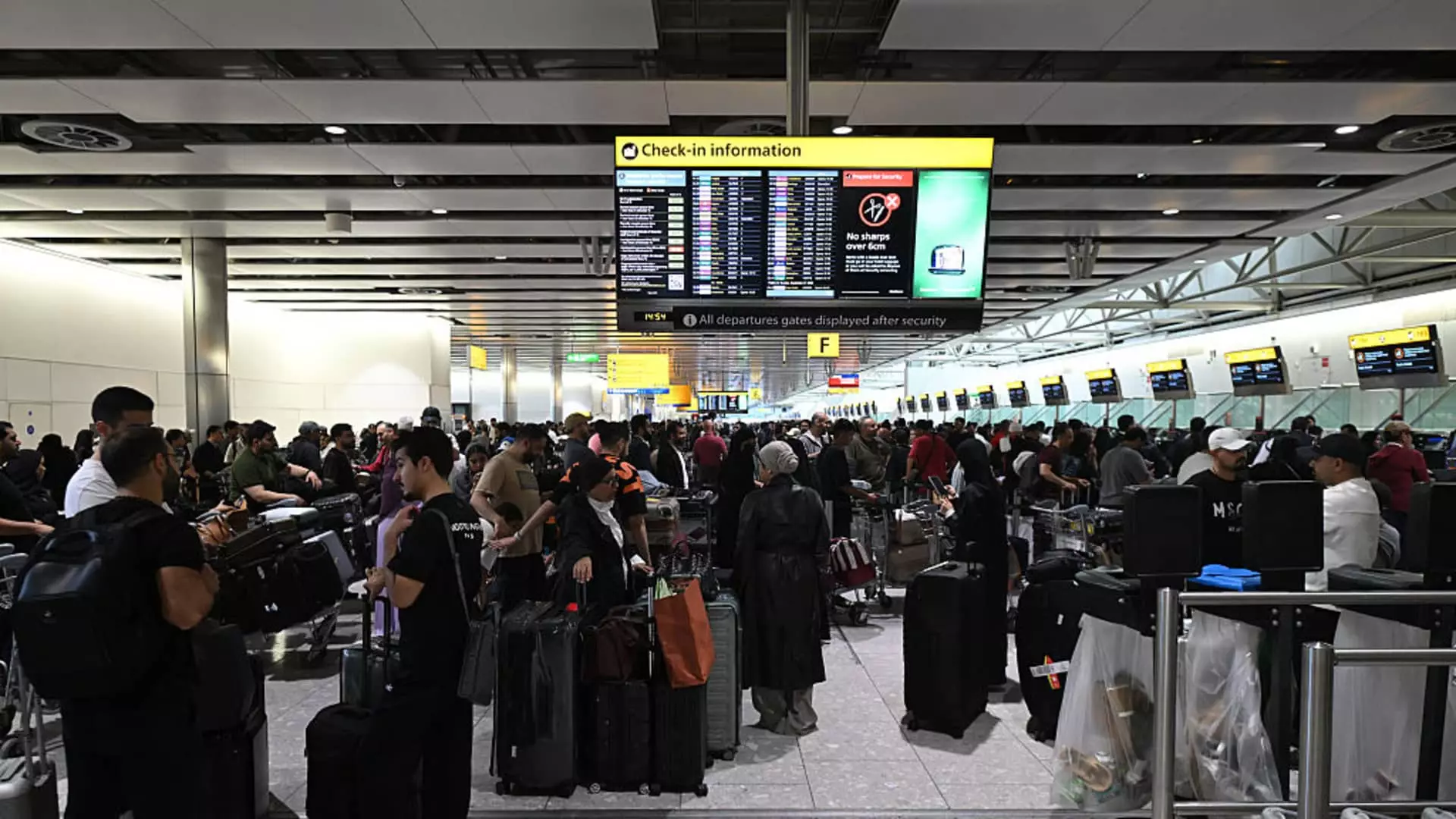In an era where technology is woven into the very fabric of air travel, recent cyberattacks expose a troubling reality: our reliance on digital systems is both our greatest strength and our most glaring weakness. The attack on Collins Aerospace’s check-in systems, affecting major airports across Europe, illustrates how fragile the modern aviation ecosystem has become. While officials insist that manual processes can offset technical failures temporarily, such statements merely mask a deeper insecurity rooted in systemic neglect and complacency.
This incident reveals an uncomfortable truth: our infrastructure’s resilience is often superficial, built on outdated patchworks rather than robust, adaptive defenses. The disruption experienced at Heathrow, Berlin, and Brussels airports hints at a system so interconnected and digitized that a single breach can cascade into chaos, canceling hundreds of flights and disorienting thousands of passengers. Such an event underscores a fundamental oversight—security is an afterthought rather than a priority in digital transformation strategies.
Vulnerabilities Exploited: The Cost of Over-Reliance on Third Parties
The cyberattack on Collins Aerospace underscores a critical weakness: the digitization of ancillary services exposes vulnerabilities across the supply chain. Instead of safeguarding their core operations, airlines and airports delegate sensitive check-in and baggage systems to third-party vendors like RTX. This layered dependency creates a domino effect—when one vendor suffers, the entire network becomes compromised.
Charlotte Wilson of Check Point points out that the aviation sector’s dependence on shared platforms for check-in, baggage handling, and operational management inadvertently broadens the attack surface. Cybercriminals recognize this too, deliberately targeting third-party vendors to maximize disruption. The ripple effect results in an erosion of passenger trust and a potential financial hemorrhage that can last for weeks or even months—yet, surprisingly, many industry players remain underprepared.
This catastrophic vulnerability is a stark reminder that cyber resilience cannot be achieved through superficial measures like backups or manual workarounds alone. It demands a fundamental shift in how aviation entities approach cybersecurity—not just to defend their own digital walls but to scrutinize every third-party relationship for weaknesses.
Inadequate Preparedness and the Illusion of Rapid Recovery
While some airports claim that manual check-in procedures mitigate the impact of cyberattacks, such assertions should be viewed with skepticism. Relying on manual processes is an acknowledgment of systemic deficiencies, not a viable long-term solution. The reality is that the disruption causes delays, cancellations, and passenger frustrations that no quick patch can resolve convincingly.
The recent cyberattack on Collins Aerospace reveals a broader failure to invest in resilient infrastructure. Instead of fostering real redundancy and security measures, many organizations appear to view cybersecurity as a regulatory checkbox rather than a strategic priority. This shortsightedness leaves critical systems exposed, and when breaches occur, recovery becomes a protracted and uncertain process, as seen in the ongoing issues at Heathrow and Brussels.
Such incidents serve as a reminder that cyber preparedness should be embedded into the core operational fabric of the aviation industry. Relying on response plans that assume swift manual intervention is naive—these systems are meant to serve as temporary stopgaps, not permanent solutions.
Systemic Neglect and the Need for Structural Reform
The attack’s broader implications extend beyond immediate operational disruptions. It signals a deeper crisis—a systemic neglect of cybersecurity within a sector that, historically, has prioritized safety and efficiency over digital resilience. The aviation industry’s digital transformation, largely driven by cost-cutting and rapid modernization, has often overlooked the critical importance of security.
Furthermore, the incident highlights the failure of coordination between governments, industry regulators, and technology providers to develop a cohesive defense strategy. Shared vulnerabilities across borders demand a unified approach, yet sectoral silos persist, leaving gaps an adversary could exploit.
The solution requires a paradigm shift: moving from reactive, patch-based security to proactive, comprehensive resilience strategies that prioritize cybersecurity as a core pillar of operational integrity. This includes regular testing of backup systems, continuous updating of security protocols, and fostering transparency among stakeholders. Until then, the aviation industry remains a tempting target—its digital backbone an unguarded gateway prone to intrusion and chaos.
Implications for Passengers and Public Trust
Perhaps the most unsettling consequence of these cyber events is their erosion of public trust. When travelers see that their flights can be canceled serendipitously due to cyber vulnerabilities, confidence in the reliability of air travel diminishes. This, in turn, impacts the industry’s reputation and economic stability, especially as the demand for seamless, digital-first travel experiences continues to grow.
Passengers are increasingly vulnerable, caught between the comforts of digital convenience and the chaos of its failure. Airlines and airports must recognize that cybersecurity is not merely an operational concern but a matter of public confidence. Ensuring resilient, secure systems is an ethical obligation—failures not only inconvenience travelers but also expose them to new layers of risk.
In an interconnected world where digital trust is paramount, allowing systemic vulnerabilities to persist is an act of negligence. The fallout from cyberattacks like the one on Collins Aerospace should serve as a clarion call—not just for the immediate industry but for society as a whole—to prioritize cybersecurity as a fundamental pillar of modern life, especially where safety and trust are at stake.


Leave a Reply